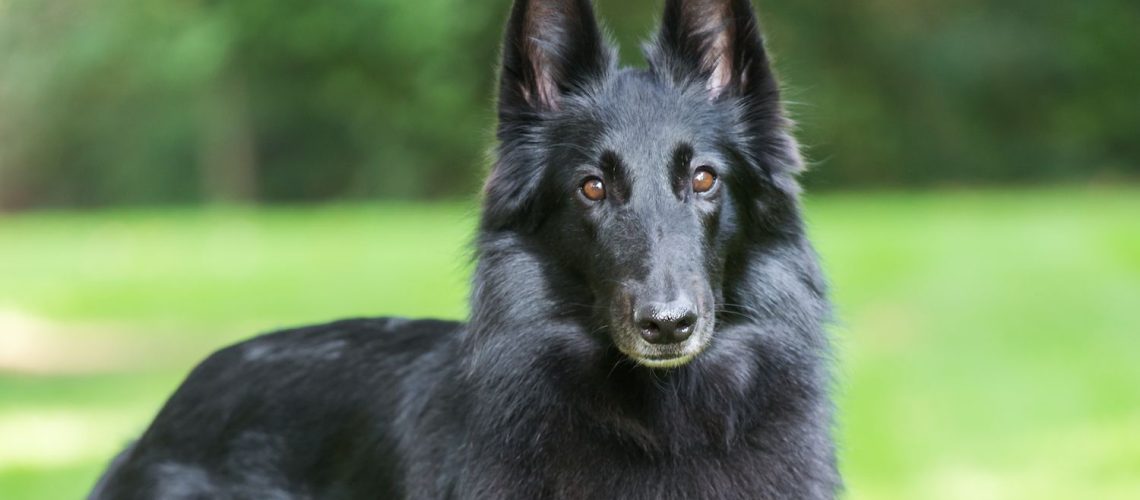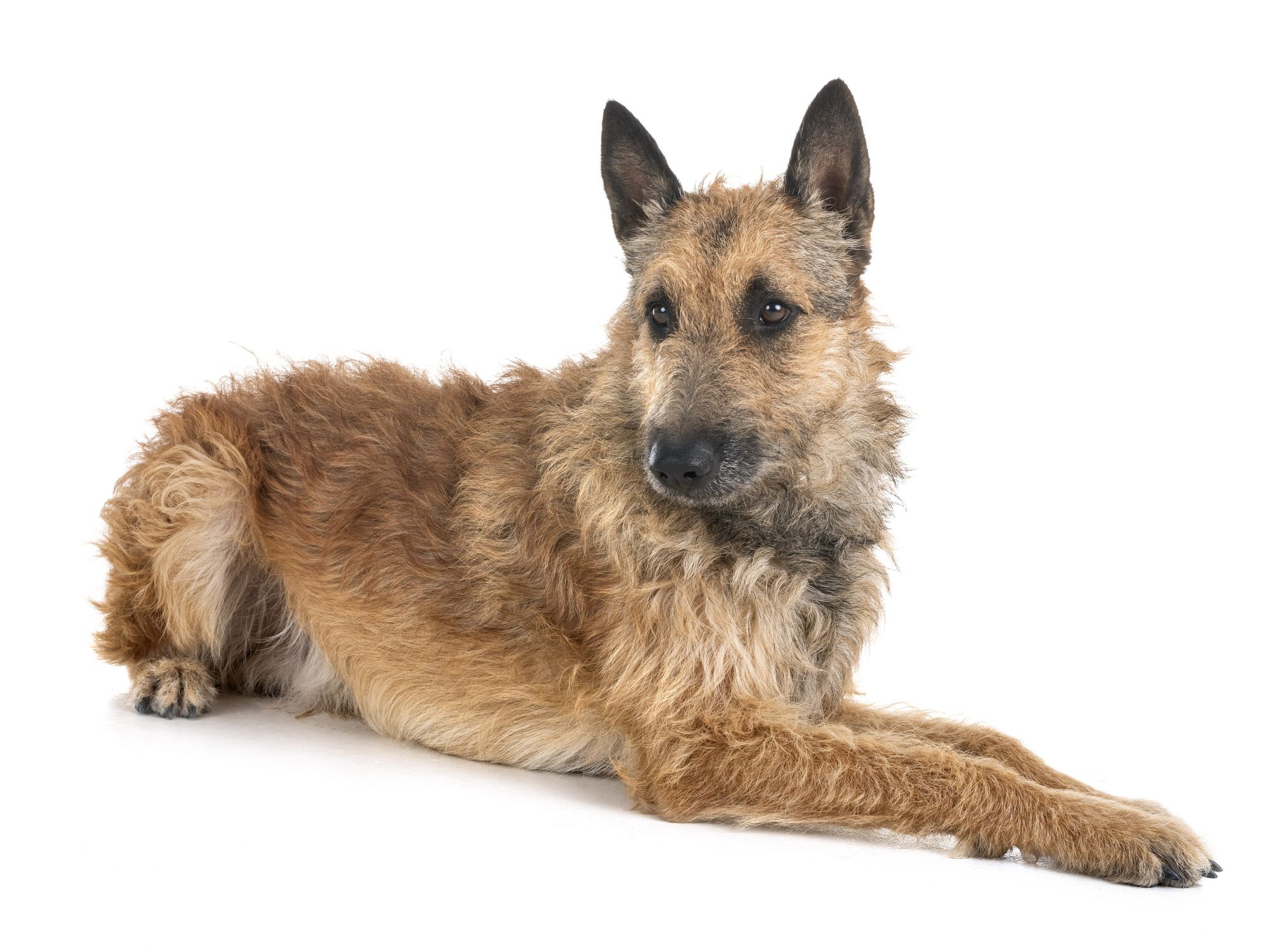Key Takeaways:
- The Belgian Sheepdog is a highly intelligent and active breed that requires mental and physical stimulation.
- They are known for their loyalty and protectiveness, making them excellent family companions and watchdogs.
- Regular grooming is essential for the Belgian Sheepdog's long, thick coat to prevent matting and maintain its appearance.
- Training should start early with positive reinforcement methods to ensure a well-behaved and obedient dog.
- Providing regular exercise, socialization, and mental challenges will help prevent behavioral issues in the Belgian Sheepdog.
Are you a dog lover? If so, then you're in for a treat! Today, we're going to delve into the world of Belgian Sheepdogs. These majestic creatures are not only beautiful to look at but also possess a range of unique characteristics and care needs that make them truly special. By understanding more about this incredible breed, you'll gain valuable insights into how to provide the best care for your furry friend. So, whether you already own a Belgian Sheepdog or are considering getting one, get ready to discover everything you need to know about these amazing dogs. Get ready to embark on an exciting journey filled with fascinating facts and useful tips that will help you become the ultimate Belgian Sheepdog expert!
Characteristics of the Belgian Sheepdog breed
Appearance
The Belgian Sheepdog is a medium to large-sized dog with a strong and muscular build. They have a long, thick double coat that comes in shades of black or fawn. Their ears are triangular and stand erect, giving them an alert and attentive expression. The Belgian Sheepdog has a proud and noble appearance.
They have a well-balanced body structure with a deep chest and straight back. Their tail is long and bushy, reaching down to their hocks. Overall, the Belgian Sheepdog has an elegant and athletic appearance.
Intelligence
The Belgian Sheepdog is known for its high level of intelligence. They are quick learners and excel in various activities such as obedience, agility, and tracking. Their intelligence makes them highly trainable and adaptable to different situations.
This breed is also known for its problem-solving skills. They can analyze situations and come up with creative solutions. This intelligence combined with their loyalty makes them excellent working dogs in fields such as search and rescue, police work, and therapy assistance.
Loyalty
The Belgian Sheepdog is a highly loyal breed that forms strong bonds with their family members. They are protective of their loved ones and will go to great lengths to keep them safe.
This loyalty extends beyond their immediate family. Belgian Sheepdogs are known for being wary of strangers but can be friendly once they get to know someone. They make excellent watchdogs due to their protective nature.
How the Belgian Sheepdog's coat helps protect them in different weather
Cold Weather Protection
The thick double coat of the Belgian Sheepdog provides excellent insulation during cold weather. The outer layer is water-resistant, keeping them dry even in snowy conditions. The dense undercoat traps air close to their body, providing warmth and insulation against the cold.
In extremely cold weather, the Belgian Sheepdog's coat acts as a barrier against the wind and helps retain their body heat. This natural protection allows them to stay comfortable and active even in chilly climates.
Hot Weather Adaptation
The Belgian Sheepdog's coat also helps them adapt to hot weather conditions. The outer layer of their coat reflects sunlight, preventing excessive heat absorption. Their undercoat acts as insulation, keeping them cool by trapping cooler air next to their skin.
In addition to their coat, Belgian Sheepdogs have a natural instinct to seek shade and rest during the hottest parts of the day. They are also known for their efficient panting mechanism, which helps regulate their body temperature by evaporating moisture from their tongue and respiratory tract.
The temperament of a Belgian Sheepdog
Energetic
The Belgian Sheepdog is an energetic breed that requires regular exercise and mental stimulation. They have a high level of energy that needs to be channeled in productive ways. Daily walks, playtime, and engaging activities such as obedience training or agility courses are essential for maintaining their well-being.
Without adequate exercise and mental stimulation, the Belgian Sheepdog may become bored or restless, which can lead to destructive behavior or behavioral issues. Providing outlets for their energy is crucial for a happy and well-balanced temperament.
Alertness
Belgian Sheepdogs are naturally alert and attentive dogs. They have excellent senses and are always aware of their surroundings. This makes them great watchdogs as they will quickly alert you if something seems out of place.
Their alertness also contributes to their trainability. They are quick to pick up on cues and commands, making them responsive and obedient. However, their strong sense of alertness may also make them prone to being reactive or sensitive to sudden noises or movements.
Exercise needs for a healthy and happy Belgian Sheepdog
The Belgian Sheepdog is an active breed that requires regular exercise to stay physically and mentally fit. Daily exercise sessions should include activities such as brisk walks, jogging, interactive playtime, and training exercises.
Engaging in activities like obedience training or agility courses can help challenge their minds and provide mental stimulation. These dogs thrive when given tasks to complete or puzzles to solve.
It's important to note that each dog's exercise needs may vary based on age, health condition, and individual energy levels. Consulting with a veterinarian or professional dog trainer can help determine the appropriate amount and type of exercise for your Belgian Sheepdog.
Health concerns to be aware of when caring for a Belgian Sheepdog
Like all breeds, the Belgian Sheepdog is prone to certain health issues that potential owners should be aware of:
- Hip Dysplasia: This is a genetic condition where the hip joint doesn't develop properly. Regular veterinary check-ups and proper nutrition can help minimize the risk of hip dysplasia.
- Epilepsy: Some Belgian Sheepdogs may be prone to seizures due to epilepsy. Medication can often manage this condition effectively.
- Eye Problems: Certain eye conditions such as progressive retinal atrophy (PRA) and cataracts can occur in this breed. Regular eye examinations by a veterinarian can help detect any issues early on.
It's important to choose a reputable breeder who conducts health screenings on their breeding dogs to minimize the risk of these and other potential health concerns.
Training and socialization for a well-behaved Belgian Sheepdog
The Belgian Sheepdog is an intelligent breed that thrives on training and mental stimulation. Early socialization and obedience training are essential for raising a well-behaved and balanced dog.
Starting training at a young age helps establish good behaviors and prevents the development of undesirable habits. Positive reinforcement techniques, such as rewards and praise, work best with this breed as they respond well to encouragement and positive feedback.
Socializing your Belgian Sheepdog from an early age exposes them to various people, animals, and environments. This helps them become comfortable in different situations and reduces the likelihood of fear or aggression towards unfamiliar stimuli.
Tips on grooming and maintaining the coat of a Belgian Sheepdog
The thick double coat of the Belgian Sheepdog requires regular grooming to keep it healthy and tangle-free:
- Brushing: Regular brushing, at least once or twice a week, helps remove loose hair, prevent matting, and distribute natural oils throughout their coat. Use a slicker brush or comb specifically designed for long-haired breeds.
- Bathing: Bathing should be done when necessary using a mild dog shampoo. Avoid frequent bathing as it can strip away essential oils from their coat.
- Nail Trimming: Trim your dog's nails regularly to prevent overgrowth, which can cause discomfort or difficulty walking. If you are unsure how to trim nails safely, consult a professional groomer or veterinarian.
- Ears and Teeth: Regularly check and clean your dog's ears to prevent infections. Additionally, maintain good dental hygiene by brushing their teeth regularly or providing appropriate dental chews.
Professional grooming may be required every few months to maintain the coat's length and overall appearance. Consult with a professional groomer for specific grooming needs based on your Belgian Sheepdog's coat condition and lifestyle.
In conclusion, the Belgian Sheepdog is a loyal and intelligent dog breed that requires regular exercise and mental stimulation. With proper care and training, this breed can make a wonderful companion for families who are willing to invest time and effort into their well-being.
Are Belgian shepherds high maintenance?
The Belgian Malinois, which is one of the four herding breeds from Belgium, is a medium-to-large dog with a strong and graceful physique. This breed is highly energetic and requires regular intense physical activity and mental stimulation, but is generally easy to care for.
What are the health problems with Belgian sheepdogs?
Belgian Sheepdogs can be prone to certain health issues, particularly if you are not careful about where you purchase them from. These include hip and elbow dysplasia, progressive retinal atrophy, cataracts, cancer, epilepsy, autoimmune thyroiditis, and retained testicles.
Can Belgian Sheepdog be left alone?
The Belgian Sheepdog is a breed that is very protective of its family and does not like to be left alone because it wants to keep an eye on its loved ones. It can handle being alone for a few hours, but if it doesn't get enough exercise, it may become destructive. To prevent this, crate training may be necessary for this breed.
Are Belgian sheepdogs aggressive?
This particular dog breed, the Belgian sheepdog, requires an experienced owner who can handle their demanding nature. Without proper guidance, they can be challenging to control. Sheepdogs can have varying temperaments and levels of aggressiveness, but they are generally very loyal and prefer to be around their family.
Who should not own a Belgian Malinois?
This breed of dog, known as a Mal, does not handle boredom well. They can become agitated and frustrated when they don't have a task or purpose. Because of this, they are not a good fit for households where the owners are away for long periods of time or frequently travel. If they have excess energy and nothing to focus on, they may cause damage to your home.
Do Belgian Malinois attach to one person?
The Malinois breed of dogs is very particular about the people they trust and those they avoid. If they are not properly socialized, they may only form strong attachments to one or two individuals in their family or team, and remain cautious of everyone else. It is necessary to actively engage with and provide ample exercise, such as running and training, for this breed.

















